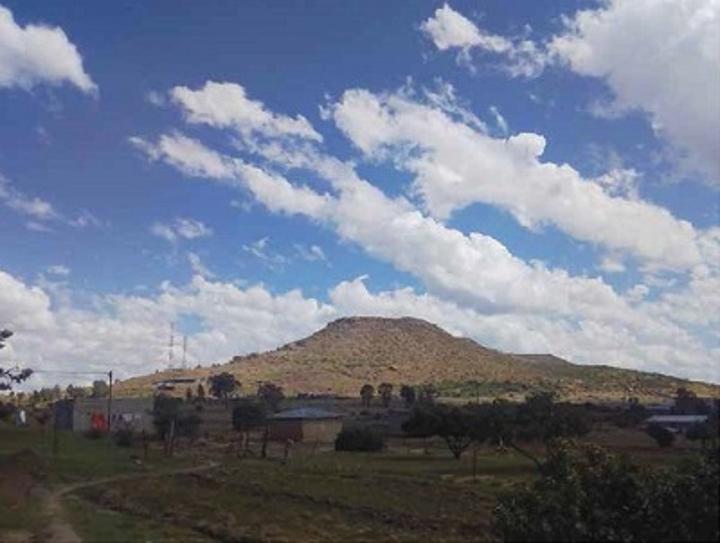Africa-Press – Lesotho. MOHALE’S HOEK – Africa has been hit hard by high prevalence of HIV/AIDS, Lesotho has not been an exception to this regard. On one hand, it has been argued that the
number of people living with HIV/AIDS is increasing globally. On the other hand, the argument is advanced that there has been a decrease in the number of
HIV/AIDS related deaths. June 2016 witnessed the Heads of States and Governments signing a Political Declaration on HIV/AIDS: On the Fast Track to Accelerating the Fight against
HIV and to Ending the AIDS Epidemic by 2030. Through signing of this declaration, the world leaders resolved to “affirm [their] commitment to end the AIDS epidemic by 2030 as [their] legacy to present and future generations,
to accelerate and scale up the fight against HIV and end of AIDS…” Lesotho first reported the HIV case in 1986 and had since then mounted mechanisms aimed at fighting against the disease.
In 2018, Lesotho committed to meet the 90-90-90 targets by 2020, the goal set by UNAIDS wherein the countries ought to make 90% diagnosis of people with HIV/AIDS,
the second 90% being for treatment of the diagnosed and the third 90% set for the achievement of the viral suppression in people undergoing the treatment.
Meanwhile, Lesotho has revised the target and now it is set for 95-95-95 which should be realised by 2030. Despite making significant strides to halt the high infection rate, there remains challenges
to be addressed if the disease is to be put at manageable levels. To buttress HIV/AIDS, the Ministry of Health (MoH) had roped in the Village Health Workers (VHW) to be at the forefront at
community level to ensure that this infectious disease is maintained. Also, these foot soldiers stand in the gap for health professionals who cannot be
able to reach high numbers of patients at all times. “Through their close proximity with the patients and vulnerable groups, their work on communities has been noticeable,”
this is according to the MoH. The VHWs have been working at communities since the late 1970s. The programme came as a result of Lesotho’s adoption of the 1978 Alma Ata Declaration Article VI
on the importance of the Primary Health Care (PHC). Some of the primary health functions performed by the VHWs are: provision of basic first aid, supporting and encouraging
people on chronic medication such as exercising compliance with taking medication and Doctors’ prescriptions, assistance to those in need of palliative care and advocacy of healthy lifestyle through conducting Lipitso (public gatherings) and door to
door campaigns for health education. The Informative Newspaper spoke with one of the VHWs on Wednesday this week on the role they play to keep HIV/AIDS at bay in their communities.
According to ‘Majesi Tšolo of Siloe in the outskirts of Mohale’s Hoek town, they have a good working relationship with their nearest health post, Mofumahali oa Rosari Clinic.
She said their work involves checking up on the patients of HIV, the pregnant women, providing health education on HIV/AIDS and encouraging compliance with
the intake of medication and regular follow-ups on clinic attendance for restocking of Antiretrovirals (ARVS). She said they keep records of each of their
attendees’ progress and the level of their medication so that when the time for refill comes they remind them. One of the highlights she noted in their work
are that some people have made a remarkable progress on account of the efforts by the VHWs, an achievement which she says makes them “happy”. Asked on some of the challenges they face at
the community, she said their local health center had ceased with the supply of contraceptives. This follows the Roman Catholic Church’s resistance to embrace
the use of contraceptives. Tšolo also pointed out that due to delay of their stipend from the Ministry, they are incapacitated to optimally carry out their duties.
Making an anecdote, she said at some point they would pay the transport fare for the pregnant women under their supervision who cannot afford to pay the taxi fare to the clinic.
The VHW also mentioned that people who do not join the group pose a challenge as they are not easily reachable and therefore not in the know of what should happen should the need arise.
“The Local Government sector response to HIV has made commendable achievements in scaling up the national response to HIV and AIDS to date.
Pursuant to the National Coordination Framework for upscaling HIV and AIDS response, [Ministry of Local Government and Chieftainship] launched the Gateway Approach using local
authorities at the forefront of the response. The Gateway Approach provided guidance on holistic and integrated approach to mainstreaming the fight against
HIV and AIDS and promoted popular participation and decision-making and to enhance the National and Localized Response to curb the epidemic and its impact,” reads the Lesotho Local
Government Service Workplace Policy on HIV and AIDS 2014 in pertinent part. This publication spoke to the Councillor of Siloe ED 2 on their role as community leaders to champion fight against HIV.
‘Makeketso Mosole, thereby said as they always relay relevant information regarding the disease and how it can be prevented, and maintained once the person has tested positive.
She said these they do during lipitso (public gatherings) that they hold regularly at their councils. Mosole said many people are generally alive to the causes and how to
live longer with the virus. The Siloe Councillor further stated that they liaise with the organisations that work on HIV issues with the communities. According to the National AIDS Commission
(NAC) Communication and Advocacy Officer Mzondase Tsepane the HIV epidemic in
the country has “stabilised” during the past 10 years. According to the Lesotho Population-based HIV Impact Assessment (LePHIA) 2016, adults between ages of 15-49 prevalence is sitting at 24.3 percent.
This prevalence is reported to be the “highest” globally. Also, Tsepane said that new infections across all ages had decreased by 18, 870 in 2007 to 14, 706 in 2017
drawing from the Spectrum Estimates 2018. She posited that Lesotho’s Strategic Plan (LSP) 2011/2012 to 2017/2018 has yielded positive results in that it has
had “tangible progress”. The ambitious NSP 2018-2023 envisages that AIDS related deaths will be reduced by 50 percent in 2017 from 4908 to less than 2454 by the year 2030.
The NSP also aspires the decline in new HIV infections by 75 percent from 14, 706 to less than 3677 by 2023. If you would like to subscribe for informative newspaper
FREE WhatsApp Edition, please follow this link to join. The admin will then remove you from the welcome group so you start receiving the full version (all pages) of the newspaper weekly. https://chat. whatsapp. com/IoL8tStNSB186kQeMrb3Cg
For More News And Analysis About Lesotho Follow Africa-Press






